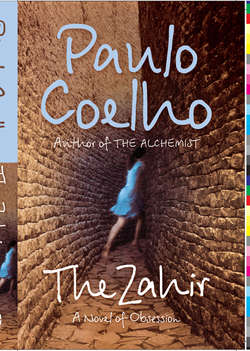Читать книгу The Zahir: A Novel of Obsession - Пауло Коэльо, Paulo Coelho - Страница 15
ОглавлениеToday, in this beautiful suite in the Hotel Bristol, with the Eiffel Tower glittering for five minutes every time the clock strikes the hour, with an empty bottle of wine beside me and my cigarettes fast running out, with people greeting me as if nothing very serious had happened, I ask myself: was it then, coming out of the cinema, that it all began? Should I have let her go off in search of that garbled story or should I have put my foot down and told her to forget the whole idea because she was my wife and I needed her with me, needed her support?
Nonsense. At the time, I knew, as I know now, that I had no option but to accept what she wanted. If I had said: ‘Choose between me and becoming a war correspondent’, I would have been betraying everything that Esther had done for me. I wasn’t convinced by her declared aim – to go in search of ‘a garbled story’ – but I concluded that she needed a bit of freedom, to get out and about, to experience strong emotions. And what was wrong with that?
I accepted, not without first making it clear that this constituted a very large withdrawal from the Favour Bank (which, when I think about it now, seems a ludicrous thing to say). For two years, Esther followed various conflicts at close quarters, changing continents more often than she changed her shoes. Whenever she came back, I thought that this time she would give it up – it’s just not possible to live for very long in a place where there’s no decent food, no daily bath, and no cinemas or theatres. I asked her if she had found the answer to Hans’s question, and she always told me that she was on the right track, and I had to be satisfied with that. Sometimes, she was away from home for months at a time; contrary to what it says in the ‘official history of marriage’ (I was starting to use her terminology), that distance only made our love grow stronger, and showed us how important we were to each other. Our relationship, which I thought had reached its ideal point when we moved to Paris, was getting better and better.
As I understand it, she first met Mikhail when she needed a translator to accompany her to some country in Central Asia. At first, she talked about him with great enthusiasm – he was a very sensitive person, someone who saw the world as it really was and not as we had been told it should be. He was five years younger than her, but had a quality that Esther described as ‘magical’. I listened patiently and politely, as if I were really interested in that boy and his ideas, but the truth is I was far away, going over in my mind all the things I had to do, ideas for articles, answers to questions from journalists and publishers, strategies for how to seduce a particular woman who appeared to be interested in me, plans for future book promotions.
I don’t know if Esther noticed this. I certainly failed to notice that Mikhail gradually disappeared from our conversations, then vanished completely. Esther’s behaviour became increasingly eccentric: even when she was in Paris, she started going out several nights a week, telling me that she was researching an article on beggars.
I thought she must be having an affair. I agonised for a whole week and asked myself: should I tell her my doubts or just pretend that nothing is happening? I decided to ignore it, on the principle that ‘what the eye doesn’t see, the heart doesn’t grieve over’. I was utterly convinced that there wasn’t the slightest possibility of her leaving me; she had worked so hard to help me become the person I am, and it would be illogical to let all that go for some ephemeral affair.
If I had really been interested in Esther’s world, I should at least have asked what had happened to her translator and his ‘magical’ sensibility. I should have been suspicious of that silence, that lack of information. I should have asked to go with her on one of those ‘research trips’ to visit beggars.
When she occasionally asked if I was interested in her work, my answer was always the same: ‘Yes, I’m interested, but I don’t want to interfere, I want you to be free to follow your dream in your chosen way, just as you helped me to do the same.’
This, of course, was tantamount to saying that I wasn’t the slightest bit interested. But because people always believe what they want to believe, Esther seemed satisfied with my response.
The words spoken by the inspector when I was released from the police cell come back to me again: You’re a free man. But what is freedom? Is it seeing that your husband isn’t interested in what you are doing? Is it feeling alone and having no one with whom to share your innermost feelings, because the person you married is entirely focused on his own work, on his important, magnificent, difficult career?
I look at the Eiffel Tower: another hour has passed, and it is glittering again as if it were made of diamonds. I have no idea how often this has happened since I have been at the window.
I know that, in the name of the freedom of our marriage, I did not notice that Mikhail had disappeared from my wife’s conversations, only to reappear in a bar and disappear again, this time taking her with him and leaving behind the famous, successful writer as prime suspect.
Or, worse still, as a man abandoned.
